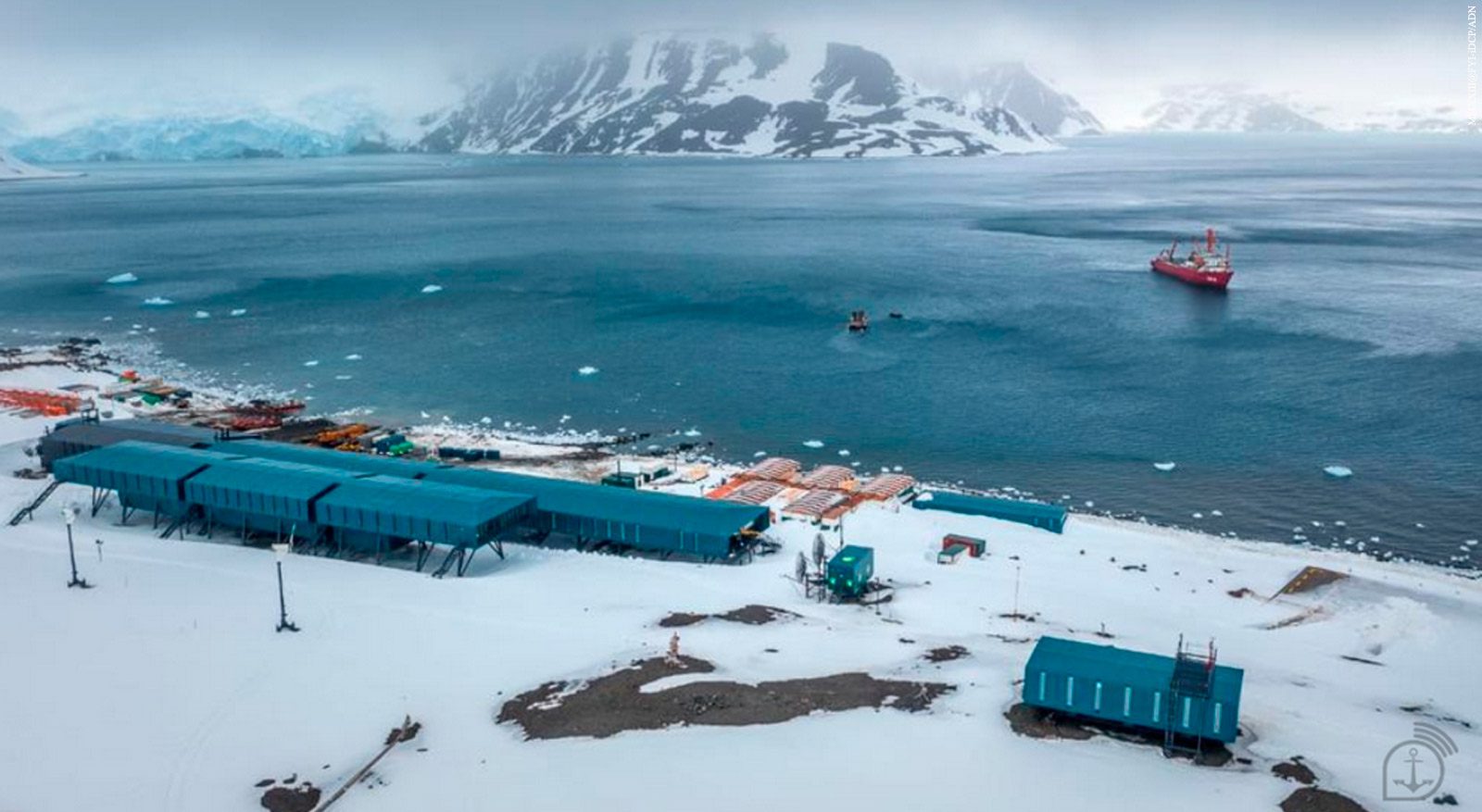PROANTAR supports research in one of the most remote regions on the planet
By Second Lieutenant (RM2-T) Leonardo Sá – Brasília, DF
The Brazilian Antarctic Program (PROANTAR) celebrates its 42nd anniversary this Friday, contributing to the development of national scientific research in the Antarctic region. Created in 1982, the program is Brazil’s longest-running scientific project and has ensured progress in studies on the natural phenomena that occur on the frozen continent and which, consequently, influence the environment worldwide.
PROANTAR supports research in various areas of knowledge, covering environmental, climatic, medical and technological issues. Over its more than four decades of existence, it has established itself as an important tool for understanding how climate systems interact, the impact of environmental change and the preservation of Antarctica’s unique biodiversity.
The Undersecretary for PROANTAR, Captain Francisco Leonardo Maciel Machado, explains that the results of the program’s research generate diverse innovations for society. “Studies on Antarctica’s terrestrial and marine organisms and ecosystems, as well as those aimed at identifying the biotechnological potential of Antarctic organisms, can certainly bring benefits to the areas of medicine, with the formulation of drugs. Agriculture will benefit from the development of new pesticides and herbicides, while industry will gain from the manufacture of products such as antifreeze, pigments and sunscreens.”
Brazil seeks to strengthen its role on the Antarctic Continent, but also to contribute to international cooperation, aiming to achieve national goals in the region through participation in international research programs and bilateral or multilateral agreements. The country’s entry into the Antarctic Treaty System has opened doors for the national scientific community to participate in activities in the region.
“It is important to emphasize that, as established in the Antarctic Treaty, the essential condition for a state to be considered a Consultative Member of the Treaty is to carry out robust scientific research in Antarctica, which is only possible with the Navy’s ability to maintain an Antarctic Station on that continent on a permanent basis. In this way, PROANTAR guarantees that Brazil will maintain its status as a Consultative Member,” said Sea and War Captain Leonardo Machado.
Every year, PROANTAR also plans, coordinates and executes Operation Antarctica (OPERANTAR), which is now in its 42nd edition. The work is carried out in the field and on board the Comandante Ferraz Antarctic Station (EACF). The Oceanographic Support Vessel “Ary Rangel”, the Polar Vessel “Almirante Maximiano”, as well as Brazil’s foreign partner stations, are also resources used in the operation.
OPERANTAR provides logistical support for research projects and launches and collects scientific camps. In addition, the operation contributes to the hydrographic survey of the “Hydrography Work Plan 2020-2023”, led by the Brazilian Navy’s Directorate of Hydrography and Navigation.
2024: year of celebrations
The Interministerial Commission for the Resources of the Sea (CIRM), responsible for implementing PROANTAR, will celebrate its 50th anniversary this year. The body, created on September 12, 1974, aims to coordinate actions relating to the National Policy for the Resources of the Sea, in addition to exercising the powers provided for in the National Coastal Management Plan, as part of the National Policy for the Resources of the Sea and the National Environmental Policy.
The Interministerial Secretariat for Marine Resources (SECIRM) will celebrate its 45th anniversary in December. Founded with the mission of advising the Commander of the Navy and carrying out the activities pertaining to CIRM’s technical and administrative responsibilities, the entity plays a crucial role in promoting scientific research, drawing up public policies and integrating efforts to preserve marine ecosystems.
On February 6, the EACF will celebrate its 40th anniversary in Antarctica. In 2020, the Brazilian station gained new facilities, with 17 laboratories. Located in Admiralty Bay, on King George Island, the structure is considered one of the safest and most modern in the region, operating with sustainable technology, through the reuse of water and the use of renewable energies.
Source: Agência Marinha de Notícias *** Translated by DEFCONPress FYI Team ***
